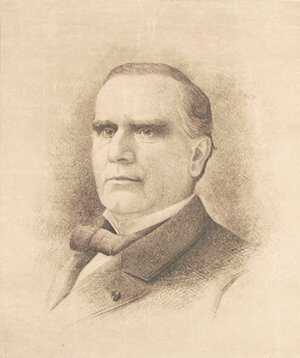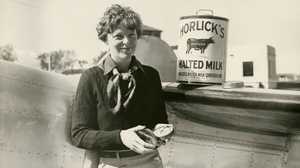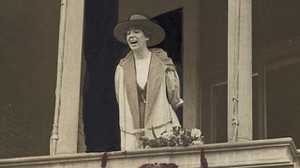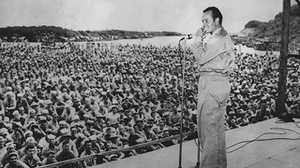25th President

Terms: 1897-1901
Political Party: Republican
First Lady: Ida Saxton McKinley
Vice President: Garret A. Hobart, Theodore Roosevelt
Overview
Born: January 29, 1843, in Niles, Ohio... McKinley, an experienced legislator and coalition builder, was elected by the greatest popular majority in decades. Elected after the closing of the American frontier to the west, Mckinley found new ways to expand in the Pacific and Caribbean following the Spanish American War. His Open Door policy to China established the United States as an equal to the great European powers. McKinley's strong presidency was brought to an end by an assassin's bullet... Died: September 14, 1901.
The Era
1898, 1899: John Philip Sousa's Stars and Stripes Forever and Scott Joplin's Original Rags are published
1898: Spanish American War
1900: The Boxer Rebellion in China
Domestic Policy
The high tariffs that McKinley favored protected American industries and were the greatest source of government income. The passage of the Dingley Tariff Act gave the president authority to negotiate lower rates or even free trade items with individual nations, an important diplomatic tool. The growing problems of black disenfranchisement and unfair monopolies were on the president's agenda but he did not act decisively on either issue. In his second term, McKinley established the gold standard as the official backing of American currency.
Foreign Affairs
Spain's brutal suppression of revolutionaries in Cuba motivated Congress, with McKinley's support, to pass a war resolution in 1898 with an amendment that guaranteed Cuba's eventual independence. In the course of a three month war, the U.S. destroyed the Spanish fleet in Manila Bay, the Rough Riders rode into Cuba, and Puerto Rico was captured. Cuba was eventually granted independence, but the United States kept Puerto Rico, the Philippines, and Guam (and annexed Hawaii amid all the expansion). The era of American Empire had begun, and was only strengthened by McKinley's Open Door policy to China mandating that trade with the Chinese be open to all western nations equally.
Presidential Politics
Campaigning from his front porch in 1896, McKinley emphasized his stance on protectionist tariffs. His opponent, William Jennings Bryan, won the Democratic nomination in large part for his speech at the convention railing against the gold standard. The eastern manufacturers endorsed McKinley and formed the basis for raising a then-record $4 million for his campaign. McKinley's policies and Bryan's moralistic tone turned the nation to the Republicans. In a rematch in 1900, McKinley stayed again on the front porch, speaking to visiting delegates. However, his campaign benefited from a new running mate, the young and vigorous reform minded governor of New York, Theodore Roosevelt.







